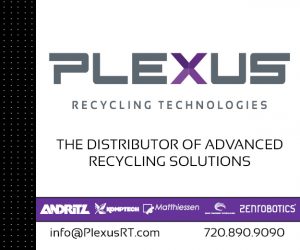 Maryland will regulate compostability claims on plastic products and study ways to boost composting throughout the state.
Maryland will regulate compostability claims on plastic products and study ways to boost composting throughout the state.
Maryland Gov. Larry Hogan on May 4 signed two bills aimed at improving organics diversion. Passage of the bills was hailed by the interest group Institute for Local Self-Reliance (ILSR).
“Composting sustains four times more jobs on a per-ton basis than landfilling or burning trash,” Brenda Platt of ILSR and chief architect of both bills, stated in a press release. “These bills will help Maryland grow composting and food waste recovery in a way that supports farmers and new businesses and creates jobs.”
Compostable labeling
House Bill 1349 requires products sold in the state and labeled as compostable to meet specific biodegradability standards.
Specifically, beginning in October 2018, plastic products labeled as compostable can’t be sold in the Old Line State unless they meet ASTM standards and the labeling guides in the Federal Trade Commission’s (FTC) Green Guides. Those labeled as home compostable can’t be offered unless the product meets the OK Compost Home standards adopted by Vincotte, a certification organization. Standards for agricultural films marketed as biodegradable are also included.
The legislation also has labeling and appearance requirements aimed at ensuring compostable bags, as well as food and drink packaging, look different from their non-compostable counterparts. Bags labeled compostable can’t be simultaneously marketed as “recyclable.”
“This new labeling requirement will significantly reduce ‘greenwashing,’ where false and unsubstantiated claims negatively impact both consumers and the environment, and thereby build trust in truly compostable products and packaging for diverting food scraps from households and businesses in Maryland,” Rhodes Yepsen, executive director of the Biodegradable Products Institute, stated in the ILSR press release.
Maryland’s new law is similar – though not identical – to one in place in California. Earlier this year, Walmart agreed to pay out nearly $1 million to settle claims from California district attorneys that the retailer was selling products violating the compostability-labeling requirements.
Statewide study
The second bill, called the Yard Waste and Food Residuals Diversion and Infrastructure Act, requires the Maryland Department of the Environment (MDE) to study and recommend ways to boost composting in the state of six million people.
MDE will study the diversion of both food scraps and yard debris in the state, conduct a review of infrastructure for diverting them from landfill, explore ways to promote composting and other diversion strategies, and more.
MDE must also deliver recommendations to boost organics diversion and identify a pilot program.



